Americans are split on whether Bretty Kavanaugh should be appointed to the Supreme Court
Judge Brett Kavanaugh’s pathway to a Supreme Court Senate confirmation has become subject to questions about sexual misconduct when he was in high school, and the latest Economist/YouGov Poll looked for possible changes in perception of him and of the #MeToo movement since the letter describing the alleged conduct was released last Friday.
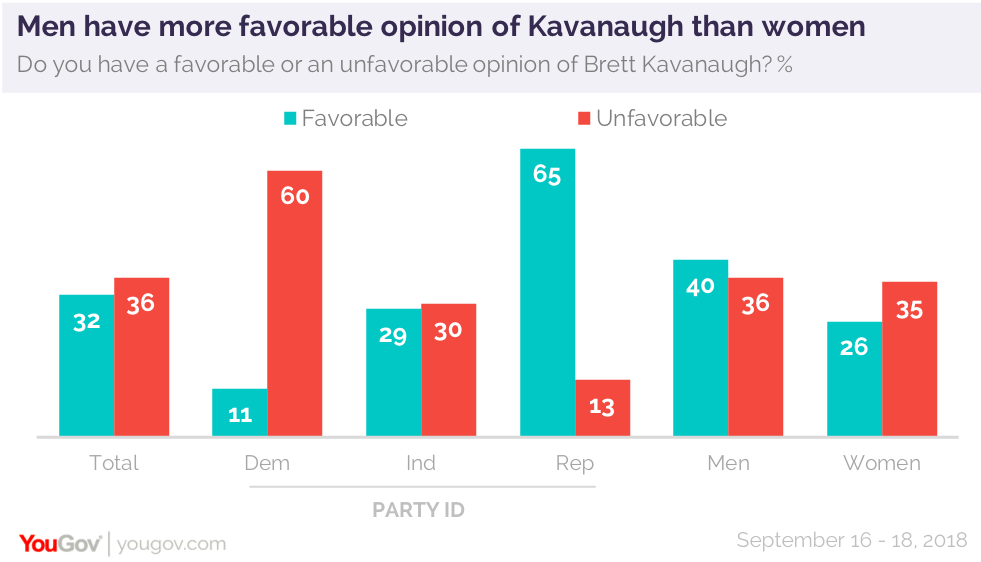
Last week, Americans had a narrowly favorable opinion about the judge; this week, opinion has become narrowly unfavorable. The increase in negative assessments has taken place among both men and women, and across the political spectrum. But this is not a massive change.
The public still regards Kavanaugh as qualified for the job of Supreme Court justice by an 11-point margin of 38% to 27%. But that margin has dropped from a 17 point spread in last week’s poll. Then 41% saw him as qualified, and 24% as unqualified.
More critically, perhaps, is that support for and opposition to his confirmation are now at the same level. Last week, more favored confirmation. Independents are now evenly divided. Last week they favored confirmation by eight points, 32% to 24%.
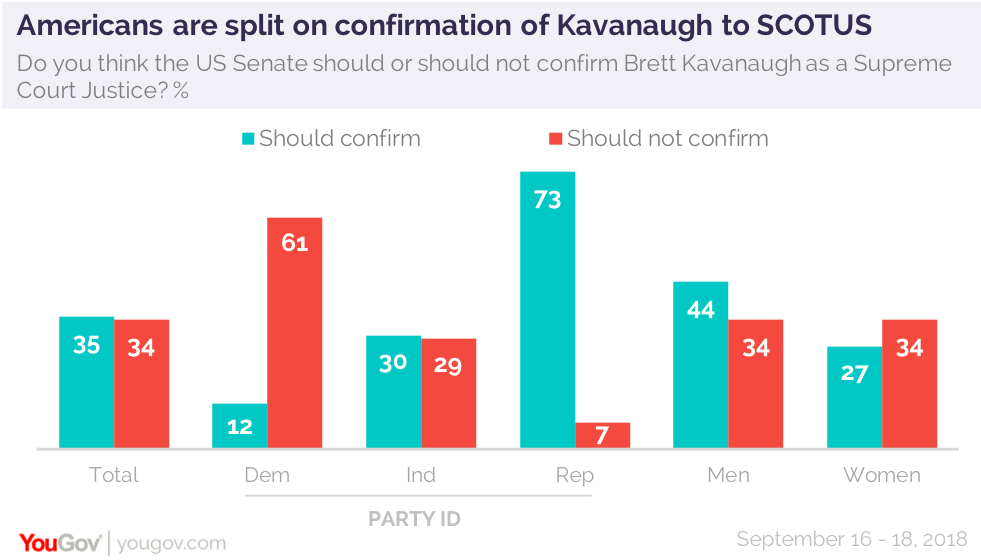
The controversy over the Kavanaugh nomination comes at a time when the #MeToo movement received new impetus from new accusations about prominent men in the media. Last year, when a number of politicians and other media titans were under scrutiny, there was a political component to the way Americans looked at the problem. The charge against Kavanaugh may have made the reaction even more political. Republicans are less likely now than before to label sexual harassment as a very serious problem.
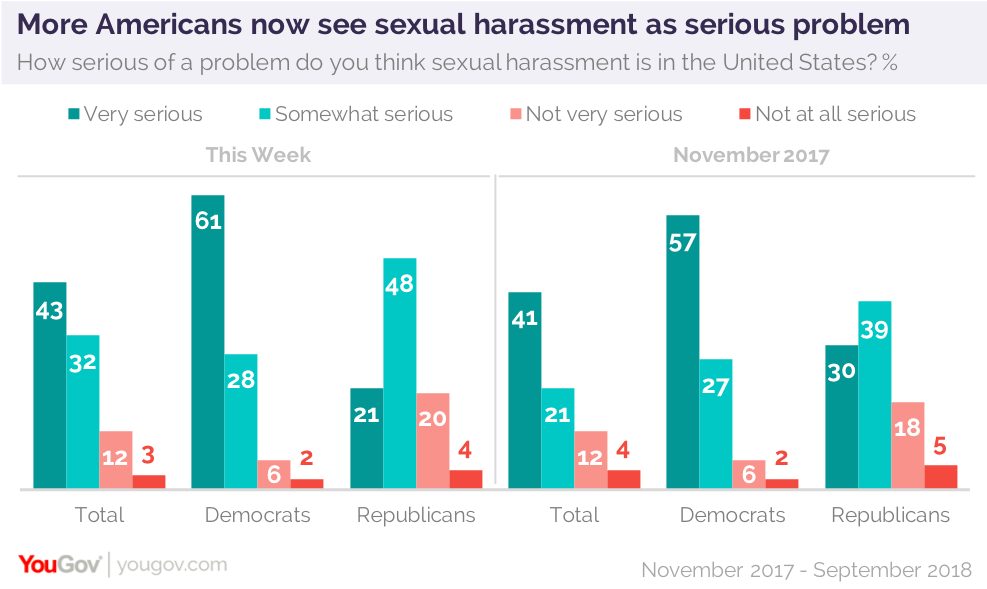
Half of all women report having been sexually harassed. 49% know someone who has been the victim of a sexual assault (fewer men answered “yes” to either question). Women having had either experience were less likely to support confirming Kavanaugh than those who did not experience either.
Most Americans – male and female, Republicans and Democrats – agree there are more cases of not reporting sexual assault there there are false accusations of men falsely accused.
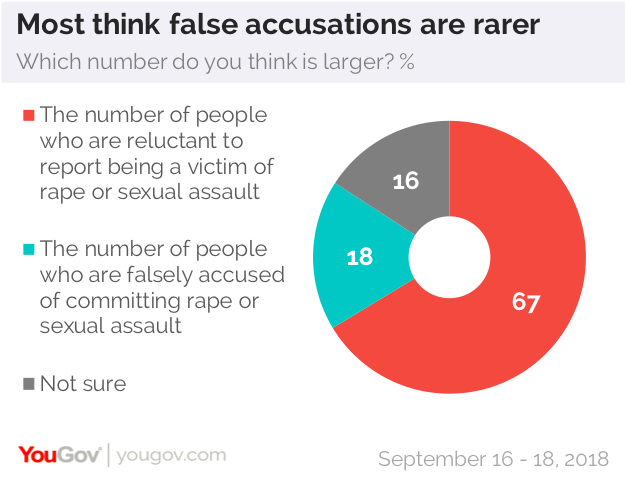
There is also consensus that in these cases, it is more important to protect the rights of the victim than it is to protect the rights of the accused.
However, there is a partisan split when it comes to how Americans view those who report harassment. Do those women cause more problems than they solve? Most of the public disagrees, as they did a year ago. But Republicans, a majority of whom also disagreed last year, now are evenly divided, suggesting that they are reacting to the charge made against Judge Kavanaugh.
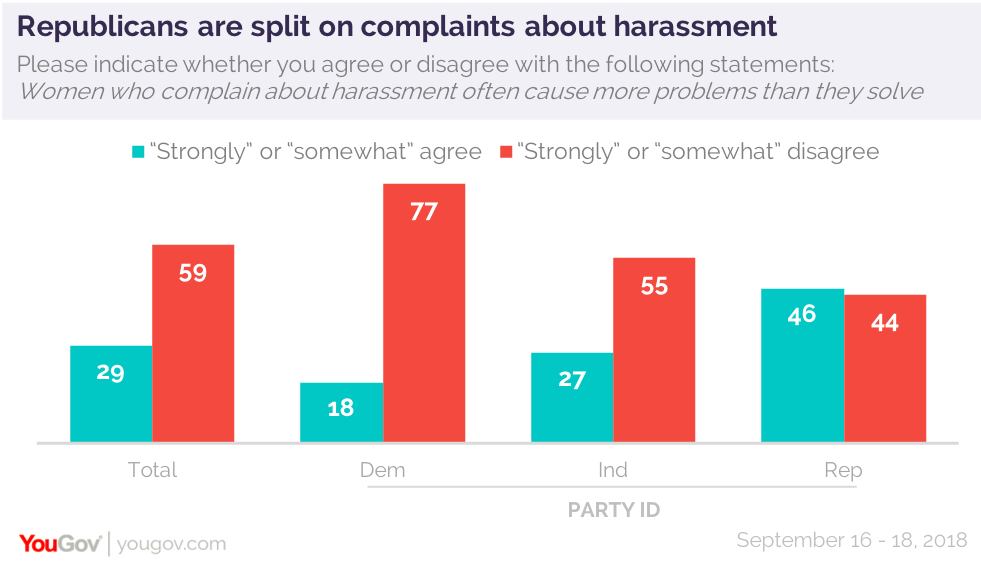
Republicans women today also are also just as likely to agree as disagree with the statement.






